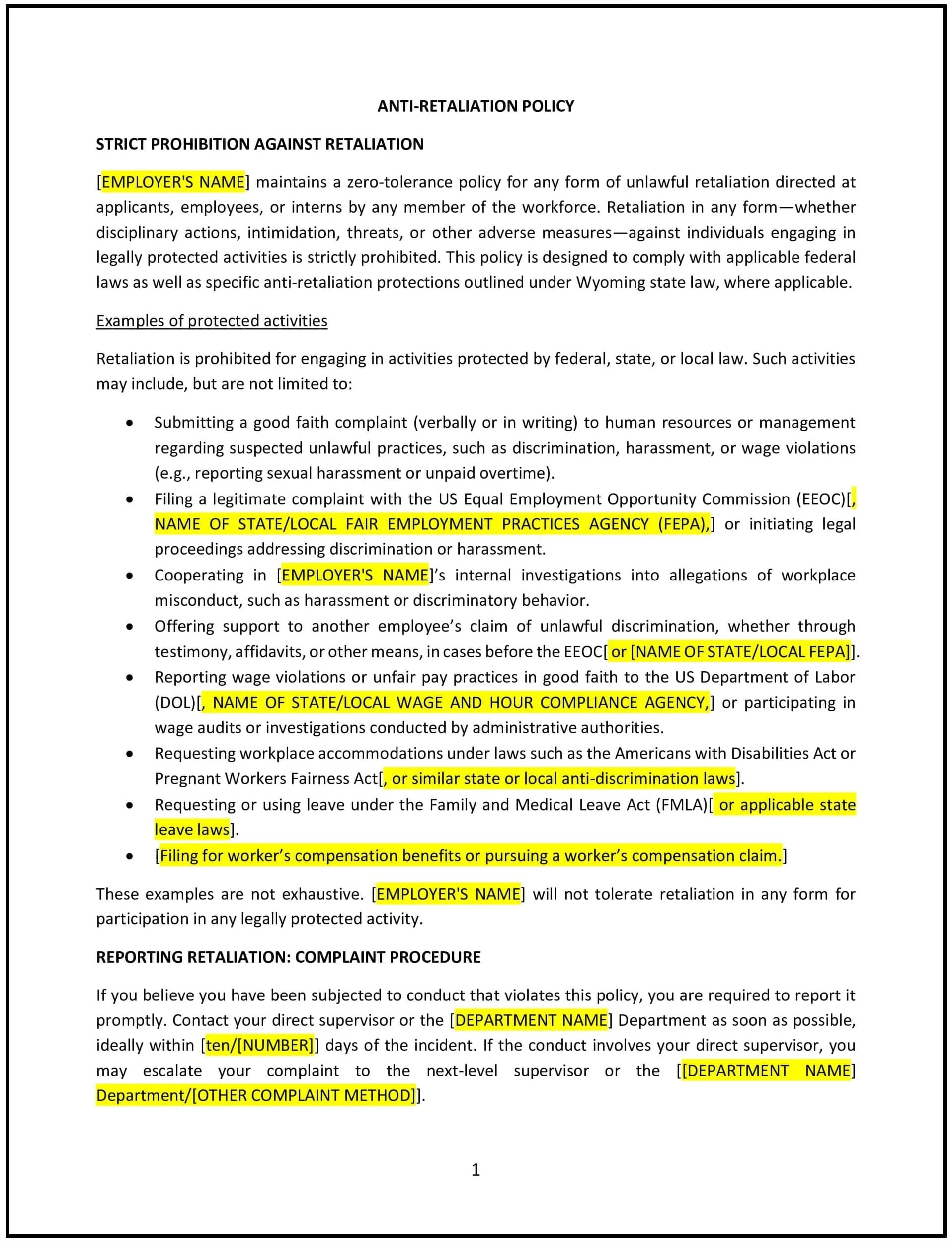Got contracts to review? While you're here for policies, let Cobrief make contract review effortless—start your free review now.

Customize this template for free
Anti-retaliation policy (Wyoming)
In Wyoming, an anti-retaliation policy outlines the business’s commitment to protecting employees from retaliation when they report workplace concerns, such as discrimination, harassment, or other policy violations. This policy aims to foster an environment where employees feel safe bringing issues to light without fear of adverse consequences. By establishing clear guidelines, the business can support a culture of accountability and compliance with federal and state laws.
How to use this anti-retaliation policy (Wyoming)
- Define retaliation: Clearly describe what constitutes retaliation, such as demotions, terminations, or other adverse actions taken against employees for reporting concerns or participating in investigations.
- Outline reporting procedures: Provide accessible and confidential methods for employees to report retaliation, creating multiple channels to accommodate different comfort levels.
- Establish investigation protocols: Detail how the business will investigate retaliation claims, including timelines, confidentiality measures, and the steps for resolution.
- Prohibit retaliation in all forms: Reinforce that retaliation of any kind will not be tolerated and that all reports will be taken seriously.
- Communicate the policy: Ensure employees and managers are aware of the anti-retaliation policy through regular communication and training.
- Monitor compliance: Periodically review workplace practices to identify and address any potential retaliation risks.
Benefits of using this anti-retaliation policy (Wyoming)
This policy offers several advantages for Wyoming businesses:
- Promotes accountability: Encourages employees to report concerns without fear, fostering a culture of transparency and trust.
- Supports compliance: Helps the business align with federal and Wyoming laws, such as anti-discrimination and whistleblower protection statutes.
- Reduces legal risks: Minimizes the potential for lawsuits related to retaliation by providing clear processes and documentation.
- Enhances workplace morale: Demonstrates the business’s commitment to fairness and respect, improving employee satisfaction and retention.
- Protects business reputation: Reinforces ethical workplace practices, building trust with employees, customers, and stakeholders.
Tips for using this anti-retaliation policy (Wyoming)
- Reflect Wyoming-specific laws: Ensure the policy incorporates applicable state laws and complements federal protections for whistleblowers and other employees.
- Provide clear training: Train employees and managers on the policy, focusing on what constitutes retaliation and how to report concerns appropriately.
- Encourage reporting: Foster an environment where employees feel safe and supported in reporting workplace issues, including retaliation.
- Document all actions: Maintain detailed records of complaints, investigations, and outcomes to demonstrate compliance and transparency.
- Regularly review the policy: Update the policy as necessary to reflect legal changes or emerging workplace practices.